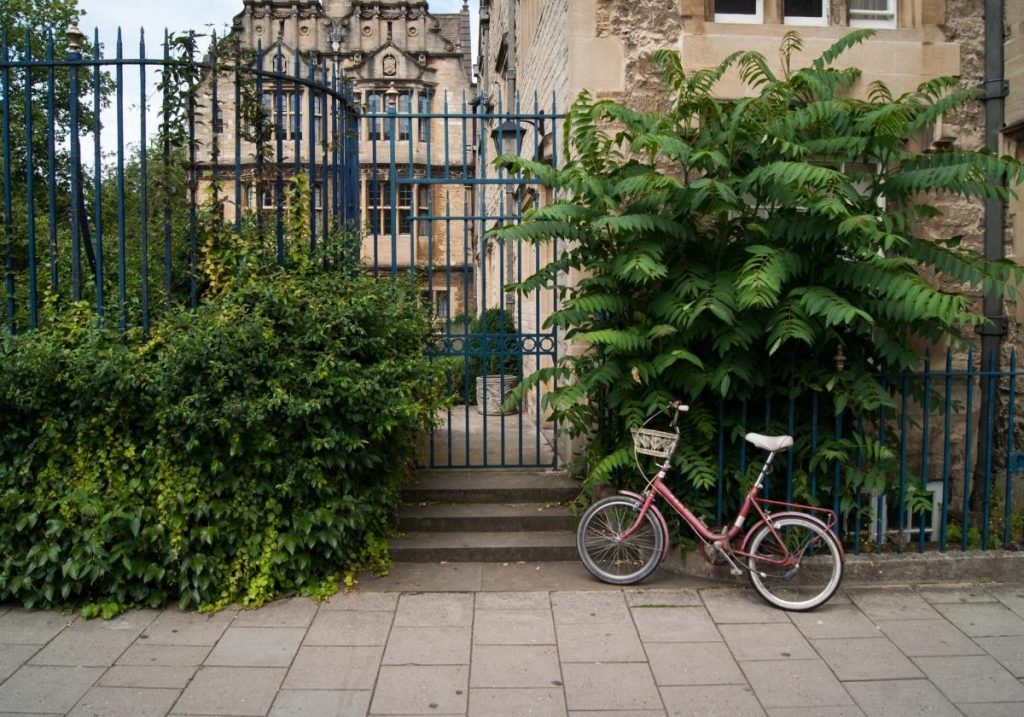Last week, we discussed the “who, when and where?” of interviews and this week, we’re turning our attention to the “what?”.
What is going to happen at your Oxbridge interview?
Interview style and format differs from subject to subject but there are certain aspects in common. You are likely to be interviewed more than once and you may well be interviewed by another college if you applied to Oxford University. You will be interviewed online (unless you are UK-based and applied to Trinity College, Cambridge). The content and format of the interview will be exactly the same as if you were face-to-face.
You will be interviewed by a tutor or tutors (supervisors in Cambridge). Sometimes there will be one interviewer, sometimes there will be one interviewer asking questions, and one taking notes. If you have expressed an interest in a particular field that another tutor is an expert in, they may sit in on the interview. Sometimes there will be a panel of interviewers. Don’t worry about the set up, and try not to second guess your interviewer’s reactions. One of the owners of Optimal Oxbridge was told that she didn’t understand a poem in her interview, and she left in tears. She later gained a place at her chosen college.


What tools do I need?
Cambridge University uses Zoom or Whereby and Oxford uses Teams. Whilst you don’t need to be an expert in these applications, do make sure the computer or device you intend to use works with them. You need a webcam and microphone (often built-in), and headphones might be useful. Make sure you have tested all of your hardware, that you have a good internet connection (turn off other applications and, if applicable and possible, ask others in your house/building not to use the internet during your interview. You should have a pen and paper with you in case you need to show any workings.
Some subjects may need you to show workings, so a tablet and stylus would be ideal (this is less applicable to the Humanities). There are alternatives so don’t panic if you don’t have a tablet. Oxford splits subjects into 3 tiers according to the tech you need for your interview. Most Humanities subjects are Tier 1 and you simply need the hardware for video conferencing. Some sciences including Biology, Biomedical Sciences, Medicine and Materials Sciences are Tier 1.
Some subjects (see the bottom of this article for which subjects are in which tier) are Tier 2 and they require an interactive virtual whiteboard via access to the Miro website (it’s free), so you can get some experience of using the whiteboard. The tutors interviewing you may paste to the Miro whiteboard or use it to write or draw on. You are unlikely to need to write out any complex mathematical notations although you may well need to show workings.
Most Sciences are Tier 3 (see the list at the bottom of this article) and they require an interactive virtual whiteboard and a touchscreen device (separate from the device you’re using for the interview itself) you can use for handwriting via a stylus. The touchscreen device should have a screen that’s at least 8 inches. You may well use your stylus for writing out mathematical notations or sketch a diagram. These should all be practiced many times so you’re familiar with the technology and it doesn’t faze you. That way, you can focus on having a conversation with the tutors rather than worrying about how to get Miro to work.
If you don’t have access to the requisite technology, talk to your school first as they can often help. If they can’t help or you are not at school, contact the Admissions Office of your college.
What if things go wrong?
At Oxford, you will be invited to each interview via a calendar invite which has the link you need for the interview. At the time of your interview, you click on this and wait in the virtual interview waiting lobby until the actual interview. If something does go awry with the tech, such as your internet connection going down, or the interactive whiteboard not working, don’t worry. You can hold workings up to the camera or the college will rearrange the interview. Such issues may seem the end of the world at the time, but the tutors and admissions team are human, and they know that things can go wrong under such circumstances. You would not be penalized for anything tech related.
Sometimes you may be ‘pooled’ to another college (which means that you will also have a set of interviews at another college). Some subjects pool every candidate so that they are interviewed by at least two colleges. Others don’t, and only certain students are pooled. Don’t overthink this. Being pooled does not necessarily mean anything about the strength of your performance in interview, but it may reflect that a college has a high number of applicants, and so they are ‘sharing’ their applicants with another college. It may be that all applicants are pooled. If you were being interviewed at college, you would get to meet the other candidates and you would know if all or some were being pooled. You’re in isolation with online interviews so don’t ruminate on anything since it’s impossible to know.
What will I be asked?
What are you going to be asked? Take a look at the sample questions under the “Course Insider Info” page(email us on [email protected] if you need any assistance in finding these pages). There are plenty of actual interview questions there to practice with your teachers and your peers and even friends and family. The faculty pages often give advice too and you can find links to these on the relevant Course page. You will often be given a problem or some pre-reading before at least one of your interviews, so it is worth being prepared for that. With pre-reading, you will probably first be asked what you understood from the passage/poem/political cartoon/historical source etc. After that, the conversation will flow from there as the tutor asks you analytical questions about the piece.
In your Oxbridge interview, you are also highly likely to be asked questions based on your Personal Statement, so re-read your PS. What would you ask you based on your PS? You might be asked what have you read recently and whilst you might have been reading an interesting but lightweight novel, we suggest that you talk about something subject related (unless your subject is English, but then make sure the novel is a little more highbrow). We will talk more about how to answer these questions next week.
What else can I do to prepare?
One thing a lot of candidates really worry about it what to wear. In the long and distant past, everyone wore a suit and tried to look business like. This is not necessary at all. Wear what you’re comfortable in, although I suggest you draw the line at gym gear.
What are the tutors looking for? What hacks are there to help you? We will discuss this in more detail next week when we discuss “How?”. Are you ready and excited about an academic discussion? That’s going to help as that is at the heart of a successful interview. The discussion is there to highlight your critical thinking skills, your intellectual ability and flexibility, your teachability and, crucially, your passion for the subject. Passion is key: no tutor wants to spend their time teaching students who aren’t really interested in their subject. Why would you when you’ve dedicated their career to a particular subject? They love their subject and they’re looking for others who share that love.
Good luck! We hope you get an interview.
Oxford University Tier 1 Subjects
- Ancient and Modern History
- Archaeology and Anthropology
- Biology
- Biomedical Sciences
- Classical Archaeology and Ancient History
- Classics
- Classics and English
- Classics and Modern Languages
- Classics and Oriental Studies
- English and Modern Languages
- English Language and Literature
- European and Middle Eastern Languages
- Fine Art
- Geography
- History
- History and English
- History and Modern Languages
- History and Politics
- History of Art
- Human Sciences
- Law
- Law with Law Studies in Europe
- Materials Science
- Medicine
- Medicine (Graduate-entry)
- Modern Languages
- Modern Languages and Linguistics
- Oriental Studies
- Philosophy and Modern Languages
- Philosophy and Theology
- Psychology
- Religion and Oriental Studies
- Theology and Religion
Oxford University Tier 2 Subjects
- Biochemistry
- Economics and Management
- History and Economics
- Music
- Philosophy
- Politics and Economics
Oxford University Tier 3 Subjects
- Chemistry
- Computer Science
- Computer Science and Philosophy
- Earth Sciences
- Engineering
- Mathematics
- Mathematics and Computer Science
- Mathematics and Philosophy
- Mathematics and Statistics
- Physics
- Physics and Philosophy
